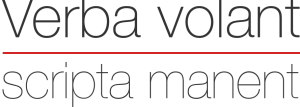
Commission européenne: le geoblocking une infraction ciblant les acteurs dominants
ActuaLitté / La Unión Europea ve con suspicacia el geoblocking pues es un impedimento al Mercado Digital Único Europeo. La eurodiputada Julia Reda hace tiempo que se ocupa de un asunto con profundas implicaciones para el sector editorial:
Tout l’enjeu était alors de déterminer si ces pratiques avaient des incidences sur le marché. D’autant plus que le geoblocking faisait partie des grands enjeux dans la réforme du droit d’auteur. La députée Julia Reda analysait que ‘l’accès transfrontalier est un sujet de plus en plus préoccupant, surtout auprès des internautes plus jeunes’. Et d’affirmer alors que cela empêchait des artistes de toucher un public plus large. Dans sa mansuétude, Bruxelles voulait en effet contraindre les vendeurs en ligne à ouvrir des sites dédiés, avec une multitude d’extensions – autant que d’États, en somme. ‘Un développement qui a un véritable coût, tout particulièrement pour des libraires indépendants’, estime l’EIBF. ‘Vendre au-delà de ses frontières, cela représente des investissements spécifiques, pour assurer un service de qualité’.
García Ruiz (Washington Post): ‘Ya no controlamos la distribución’
Silvia Cobo / Ponencia de Emilio García Ruiz, responsable del área digital del Washington Post. A tener en cuenta:
[…] Resumo brevemente qué datos aportó en su ponencia en el Congreso de Periodismo digital de Huesca. Hoy el 70% del tráfico es móvil (esta pantalla con la que escribo ya la puedo ir tirando por la ventana…). Ya no controlamos la distribución de nuestros contenidos: solo el 20 % del tráfico es directo. El 80% viene por redes sociales y google. Cambia la estrategia: ahora la home no es tan importante. Hay que decidir en seguida si la audiencia para un artículo serán las redes sociales o será Google..
Press release: O’Reilly Media debuts new learning platform Oriole Online Tutorials
Book Business Magazine / O’Reilly Media estrena nueva plataforma de formación on-line. Se llama Oriole Online Tutorials y, en palabras de Tim O’Reilly:
‘There are people who learn by reading, there are people who learn more when they listen to someone else explain, and almost everyone learns best by doing’, said Tim O’Reilly, founder and CEO of O’Reilly Media. ‘But what’s totally amazing is when you can put text, executable code, and a brilliant teacher explaining what you’re reading and doing into one integrated package. That’s what we’ve done with Oriole Online Tutorials’.
RBA: la editorial sin editores
El Mundo / RBA ha echado a los pocos directores editoriales con experiencia que le quedaban. Poco a poco parece confirmarse aquello de ‘la edición sin editores’:
Tal es la suerte del RBA, el grupo del empresario de origen argentino Ricardo Rodrigo y Jordi Martí (como socio minoritario), el tercero en España por detrás de Planeta y Penguin Random House. Con la confirmada salida la semana pasada de los dos últimos mohicanos de la división de libros del conglomerado, Manel Martos y Clara Sabrià, el punzante título de Schiffrin es hoy por hoy una realidad, porque RBA es de hecho una editorial sin editores.
Bertelsmann ‘eyes 70-75% stake in PRH’
The Bookseller / En Pearson ya dijeron hacen tiempo que no les importaría vender y en Bertelsmann parecen dispuestos a comprar, aunque sin mucha prisa. Penguin Random House, en breve, podría ser mucho más alemana:
According to a Reuters report from Berlin, where the German company held a press conference this morning (22nd March) to announce its 2015 results, Rabe said he did not expect anything to happen this year, but that Bertelsmann had been approached by a number of investors who would be interested in participating in a deal to buy Pearson’s stake (47% to Bertelsmann’s 53%) should Pearson decide to sell.
Self-published titles ‘22% of UK e-book market’
The Bookseller – The Digital Reader / Steve Bohme, de Nielsen, dice que en el Reino Unido el 22% del mercado del libro digital es de autores autoeditados, pero Nate Hoffelder especula con un 30%:
Price, convenience and range and selection were the most common reasons customers gave for buying from the Internet, whereas convenience was also the top reason for buying from a chain retailer. Independent bookshops, meanwhile, were increasingly chosen for their selection offered.
How Hummingbird is democratizing ebook retailing
Digital Book World / Hummingbird simplifica –y mucho– el trabajo de montar tu propia librería digital con tus propios libros. Interesante para editoriales independientes y autores autoeditados:
Hummingbird’s solution was to create a platform on which anyone can set up an online ebook storefront for free. Potential merchants can range from independent bookstores to nonprofit organizations and professional groups. Merchants get a branded storefront where they can sell digital books, and a branded app that allows their consumers to download ebooks and listen to audiobooks.
Scribd officially transitions from an unlimited e-book service
Good e-Reader / La tarifa plana se está mostrando un modelo de negocio ruinoso para Scribd; la plataforma de lectura en la nube está cambiando a un modelo basado en créditos. Cada mes el suscriptor del servicio contará con una serie de ‘créditos’ que le darán derecho a leer una cantidad limitada de libros. 24Symbols ya realizó esta transición hace un par de años:
Scribd announced last month that they were changing their business model from an unlimited service to a credit based one. Every month users receive three credits that they can use to read e-books or to listen to audiobooks. There are a small pool of Scribd Select titles that can be read without spending credits and today there is a new blog post that lists a number of titles.
The power of free: how to sell more e-books
Publishers Weekly / Ofrecer la descarga gratuita de una parte de tus títulos puede estimular la venta del resto. Mark Coker, fundador de Smashwords, nos recuerda cómo:
To many authors, the idea of giving their work away for free is counterintuitive—and possibly abhorrent and sacrilegious. Free devalues your work, right? Wrong. Free makes your work more valuable. As an author, you are a brand. Readers buy books from authors who have earned their trust. But to earn readers’ trust, you must first earn their awareness. If readers don’t know you, they can’t trust you—your brand carries no value to them. You’re invisible. Even if you’re already a New York Times bestseller, there are millions of potential readers out there who have never heard of you and have never read your stuff.
Will ebooks ever circulate freely in europe?
Publishing Perspectives / Joaquín Rodríguez se pregunta si algún día los libros digitales podrán circular libremente por Europa, sin unas fronteras que cada vez tienen menos sentido, y muestra los principales escollos y posibilidades:
Still, the resistance of private companies could hold up the creation of a single European digital market, despite the existence of common guidelines of interoperability and goals established by the Pillar II of the European Digital Agenda. “The Internet is a great example of interoperability—numerous devices and applications working together anywhere in the world. Europe must ensure that new IT devices, applications, data repositories and services interact seamlessly anywhere—just like the Internet. The Digital Agenda identifies improved standard-setting procedures and increased interoperability as the keys to success.”
Penguin Random House VP of Paper purchasing & production planning on the future of the book supply chain
Book Business Magazine / Tan breve como interesante entrevista a Michael DeFazio, Vicepresidente de ‘Compra de papel y Planificación de la producción’ en Penguin Random House, acerca de la futura cadena de suministros de la edición:
Several book industry leaders were in attendance, and I had the chance to speak with a handful of those leaders to discuss their perspectives on digital printing and the opportunities it presents to the industry. One of the executives I spoke with was Michael DeFazio, VP paper purchasing & production planning at Penguin Random House. Although DeFazio sees an opportunity to increase the share of PRH’s list that is printed digitally, and thereby reduce warehousing costs, he believes significant infrastructure changes must be made first, both internally at PRH and within their printing partners’ organizations. DeFazio hopes to see a future where book files can be seamlessly shared between book manufacturers and publishers so that titles can move automatically from offset to digital and back to offset, as consumer demand requires.


